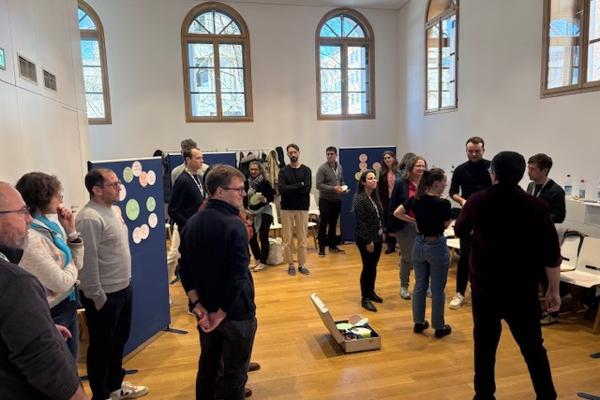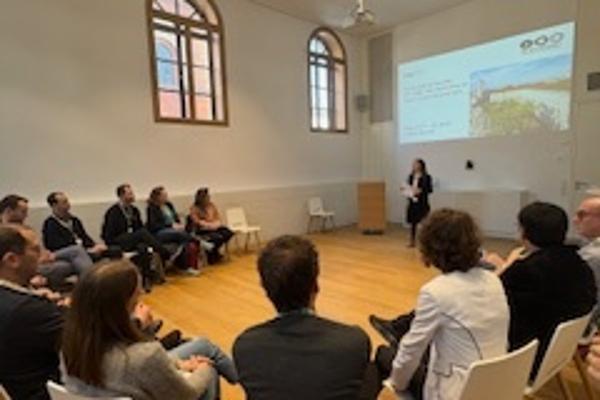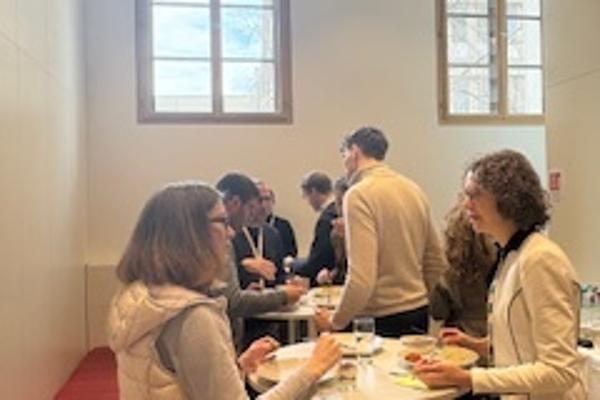The 2nd LMU-TAU workshop for early-career researchers, organized by Prof. Kern at SODA
Lab and Dr. Lior Zalmanson at Tel-Aviv University (TAU), took place from March 17-19 in
Munich. The workshop brought together researchers from both universities to explore the
rapidly evolving relationship between Artificial Intelligence (AI), humanities and society.
Through engaging sessions led by interdisciplinary groups of researchers from both
universities and two thought-provoking keynotes, the event tackled AI's transformative
potential while addressing ethical, psychological, and societal challenges. The delegation
from LMU included, among others, three PhD students from the SODA Lab: Leah von der
Heyde, Marcus Novotny and Anna Steinberg who each gave presentations on their current
PhD project.
The first keynote, delivered by Prof. Dr. Sven Nyholm, focused on the ethics of AI through
the lens of digital duplicates: artificial, at least partial, recreations or simulations of real
individuals. The advent of digital duplicates challenges the view that individual scarcity
contributes to or heightens the value of a life, sparking critical ethical questions about
authenticity, individuality, consent, and the meaning of human life.
Building on the issues of authenticity and individuality, one session explored AI’s role in
psychological research, showcasing how Large Language Models (LLMs) are transforming
experimental designs by taking on roles historically held by human participants or
researchers.
Another session tackled AI's impact on organizational accountability, raising concerns about
the "scapegoating effect," where users shift blame to AI systems, reducing personal
responsibility and increasing liability risks for organizations. In the legal field, researchers
examined AI's growing role in judicial decision-making, questioning how traditional
procedural safeguards—designed with humans in mind—can adapt to integrate AI while
maintaining fairness and public trust.
The pervasive impact of AI across nearly every scientific discipline was highlighted even
further by the second keynote delivered by Prof. Dr. Thomas Schärtl-Trendel. He examined
how AI fits into the Theory of Mind and presented a large portfolio of possible explanations
embedded in theology and philosophy.
The question of nuance in AI understanding was another focal point. Discussions addressed
AI’s ability to detect subtle cues, such as irony, while exploring the limitations posed by data
biases and echo chambers. The closing panel examined the distinctions between human
and artificial agency, presenting frameworks to contrast AI with human reasoning and
exploring biometric techniques to verify authenticity and identity.
The workshop provided a valuable opportunity to explore the diverse ways in which AI is
being studied by researchers in the humanities, social sciences, and law. It also inspired
numerous new ideas for future collaboration between LMU and TAU.



